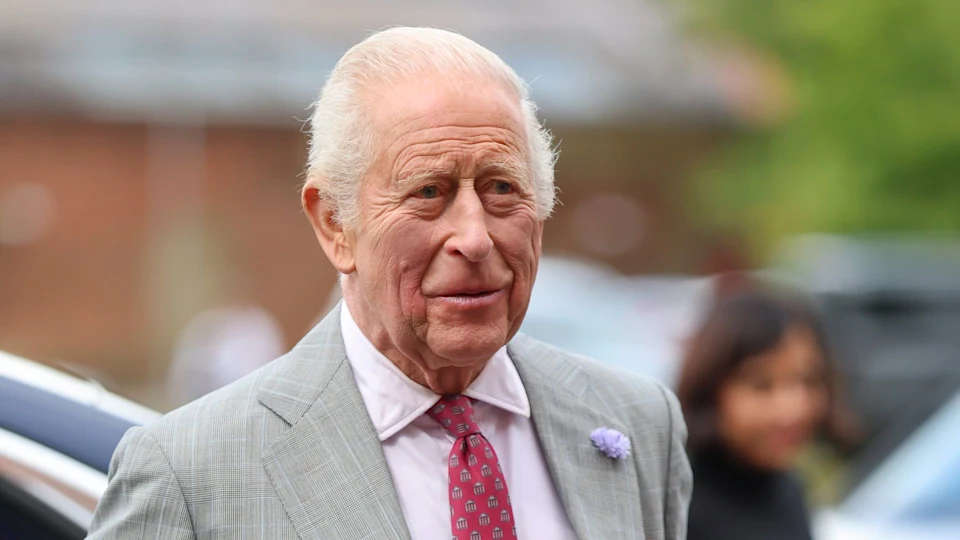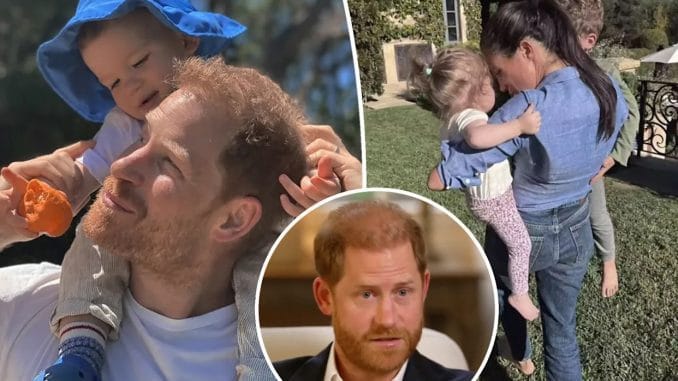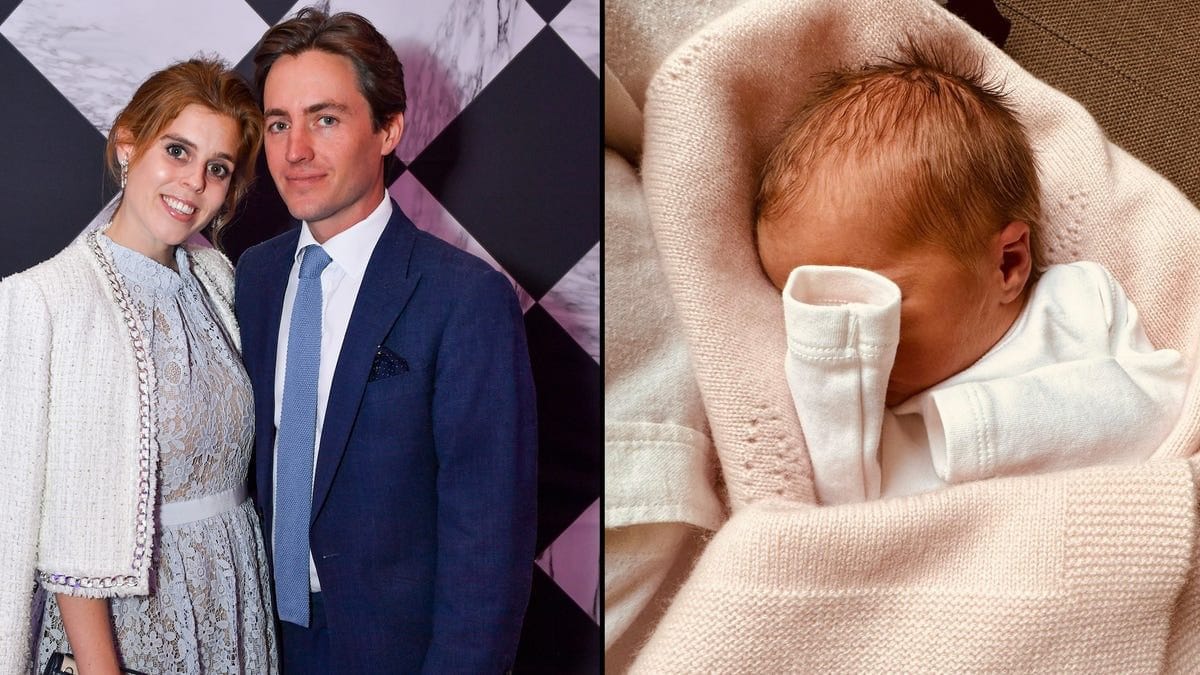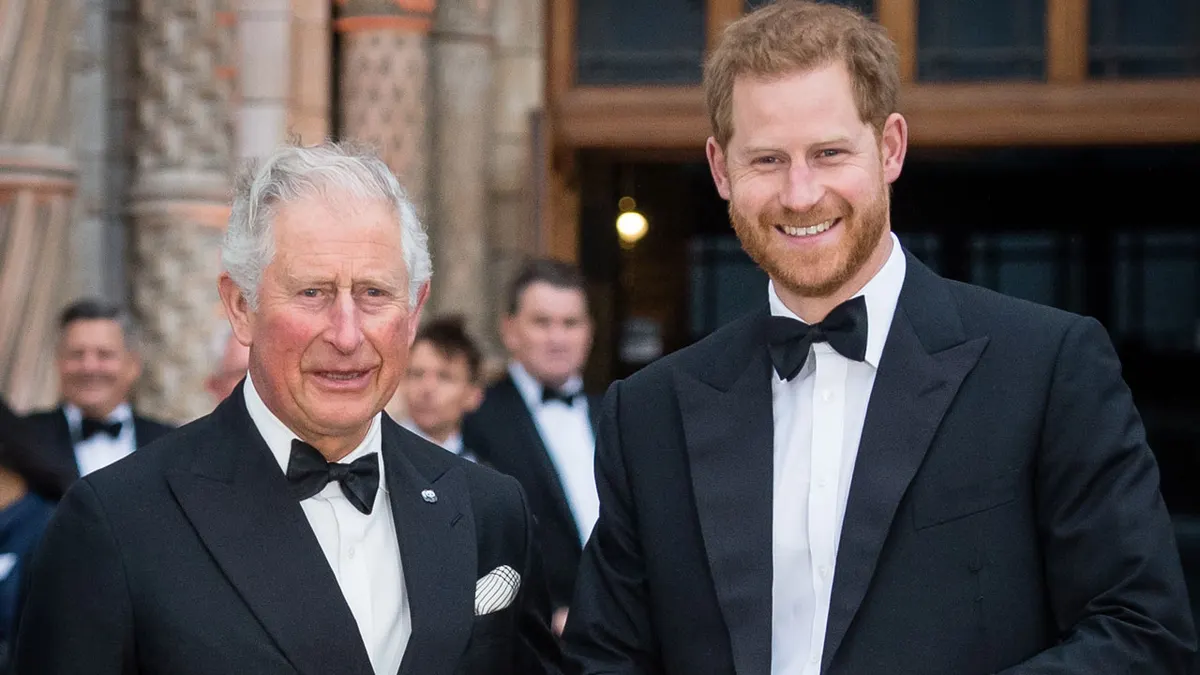It was meant to be just another elegant toast during a state banquet in France. But under the golden chandeliers of the Élysée Palace, King Charles III allegedly broke royal protocol in a move that left his closest family members frozen. Princess Charlotte, just 10 years old, suddenly became the center of royal attention—and possibly, royal succession planning.
Could this moment mark the beginning of a historic shift in the monarchy’s future? Here’s what we know.
A Toast That Turned into a Title: The Alleged Announcement
According to sources close to the event, King Charles was expected to deliver a traditional speech about Anglo-French relations. But midway through his toast, the monarch turned toward his granddaughter, Princess Charlotte, and said something that shocked everyone in the room:
“With all the pride of a grandfather, I officially bestow upon you a new title…”
Princess Kate reportedly covered her mouth. Prince William leaned toward Charlotte in disbelief. And Queen Camilla, visibly tense, gripped the armrest of her chair. What followed was complete silence—no applause, no smiles. Just stunned faces and whispered questions.
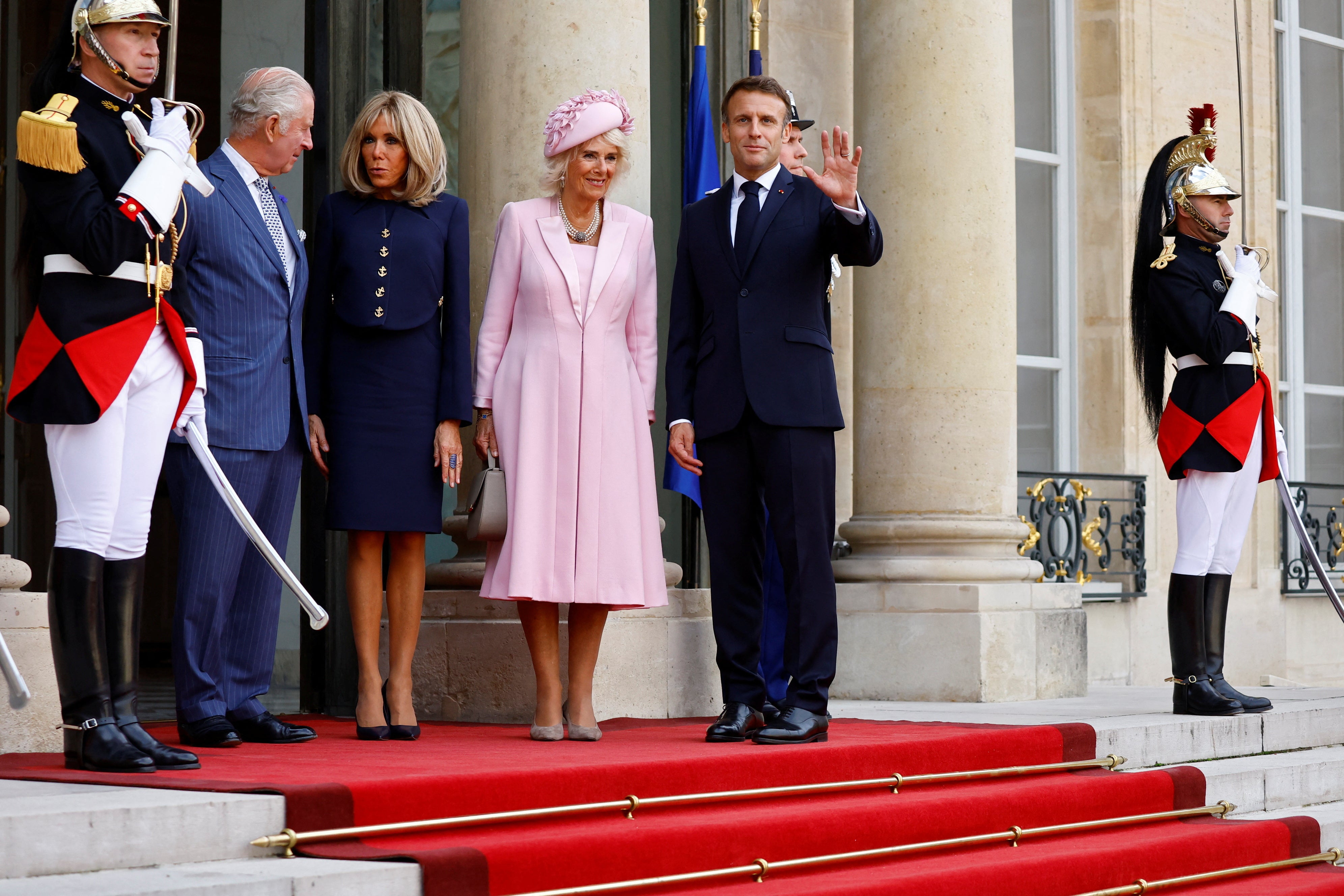
What Title Did King Charles Give Princess Charlotte?
Although no official announcement was made by Buckingham Palace, royal insiders speculate that the title in question could be “Duchess of Edinburgh.” This prestigious title was previously held by Queen Elizabeth II before she married Prince Philip.
Giving it to Charlotte now would be highly unusual—titles like this are traditionally granted during adulthood or after marriage. If true, this would mark an unprecedented step and send a clear message: Princess Charlotte is being groomed for a major royal role.
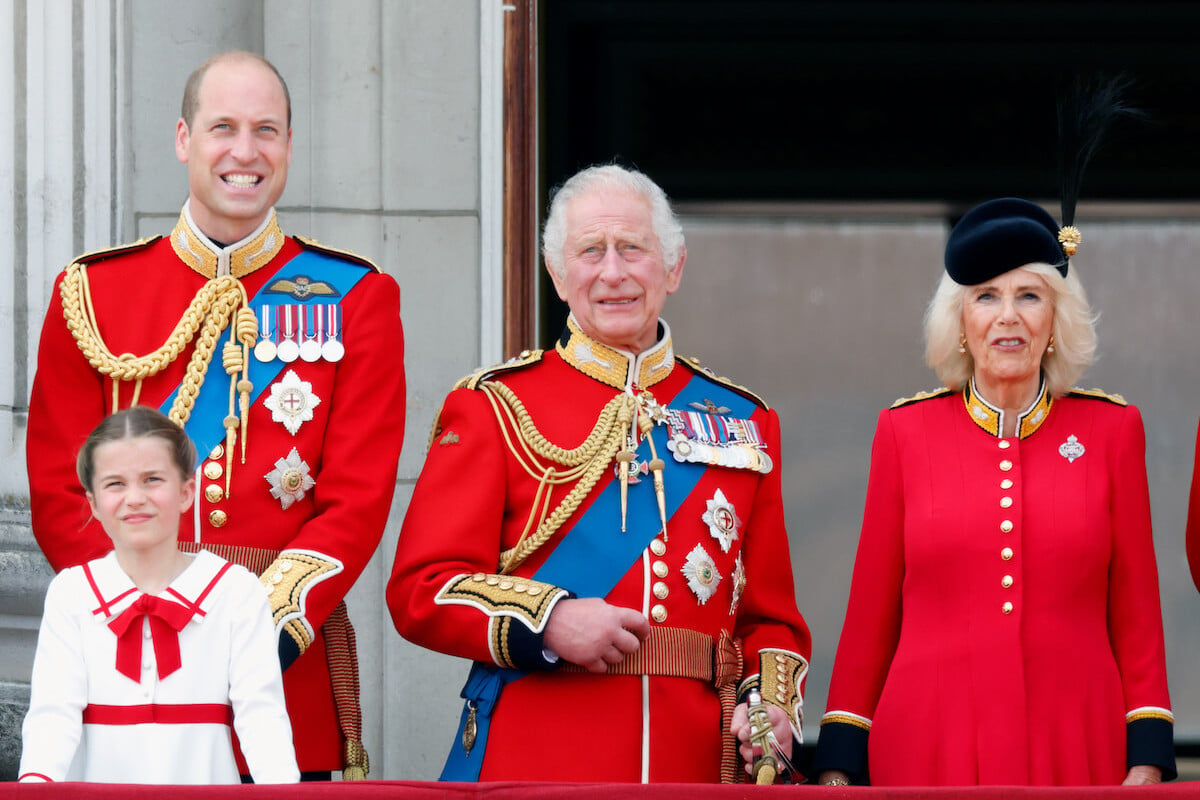
Breaking Royal Protocol: Why This Is So Controversial
Royal traditions are sacred in the British monarchy. Titles, roles, and honors are granted only after years of preparation and with careful consideration. Charlotte receiving a title at the age of 10—especially in such a public and unexpected setting—would be a bold break from centuries-old customs.
This raises deeper questions:
-
Is King Charles bypassing Prince William’s influence on succession planning?
-
Why wasn’t the announcement coordinated with the rest of the royal family?
-
Is this a subtle power play within the House of Windsor?
Some royal analysts believe it could be a move to solidify Camilla’s family status, or even a statement about Charlotte’s rising importance, potentially positioning her above her younger brothers or cousins in symbolic hierarchy.
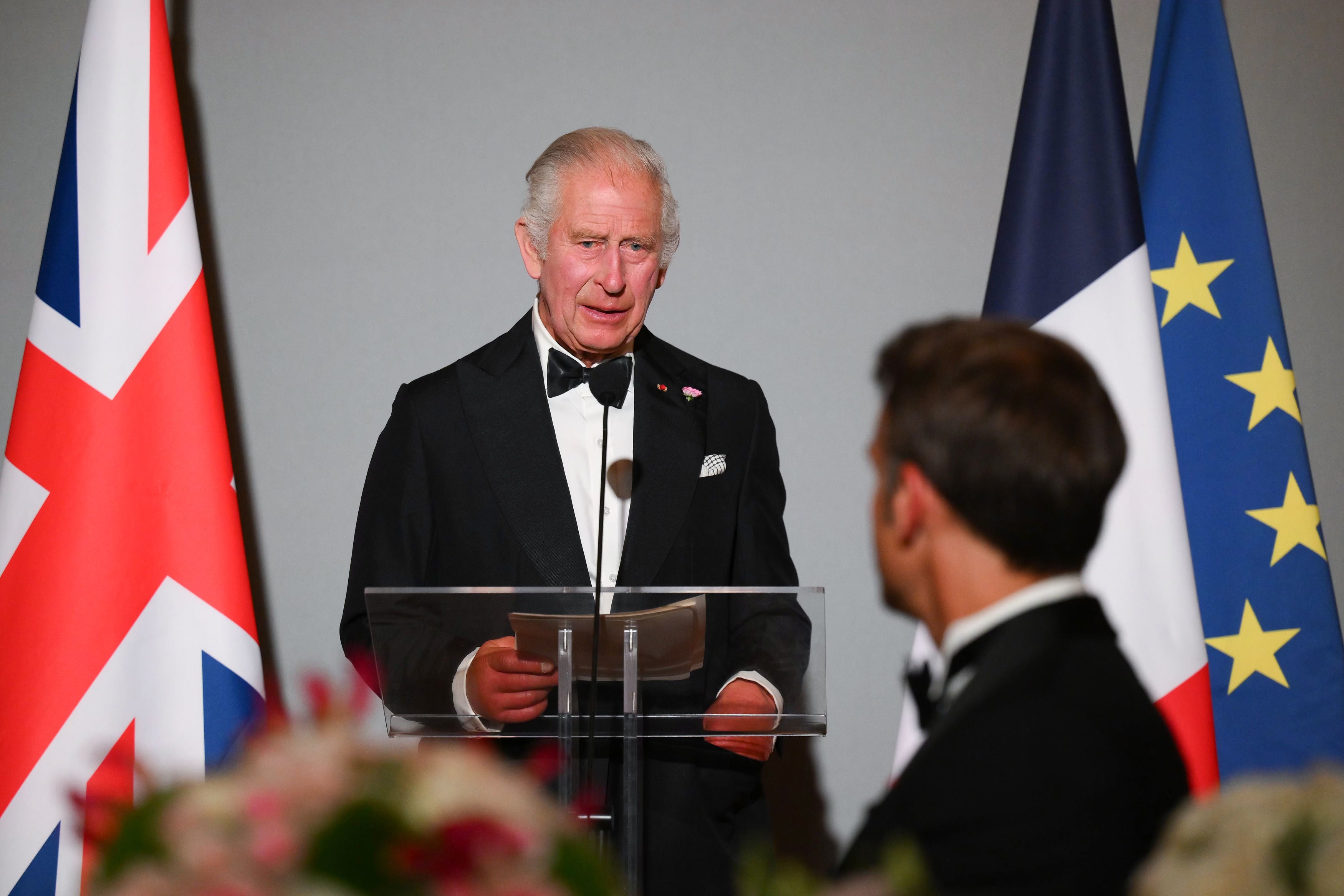
Princess Charlotte: More Than Just the Spare
Unlike previous generations, the younger royals are growing up in a different kind of spotlight. Princess Charlotte has already demonstrated poise, confidence, and charm during public events—often drawing comparisons to her late grandmother, Princess Diana.
This alleged title announcement, if confirmed, would elevate Charlotte’s status far beyond that of a typical royal child. It would also reinforce the modern image of the royal family, with strong female figures at the forefront of future leadership.

Palace Silence and Public Reaction
The lack of an official statement has only fueled speculation. Some royal fans have praised the move as “visionary” and “inclusive,” while others question the timing and the secrecy.
Meanwhile, social media exploded with theories, memes, and debates. Was this a genuine honor, a symbolic gesture, or just a misunderstood moment taken out of context?
Conclusion: A Turning Point for the Modern Monarchy?
Whether or not Princess Charlotte was formally named Duchess of Edinburgh, one thing is clear: her role in the royal family is evolving fast. King Charles’s toast—real or rumored—reflects a deeper shift in how the monarchy views gender, tradition, and succession.
As the next generation of royals comes of age, moments like this reveal more than just family dynamics—they signal the future shape of the Crown itself.

